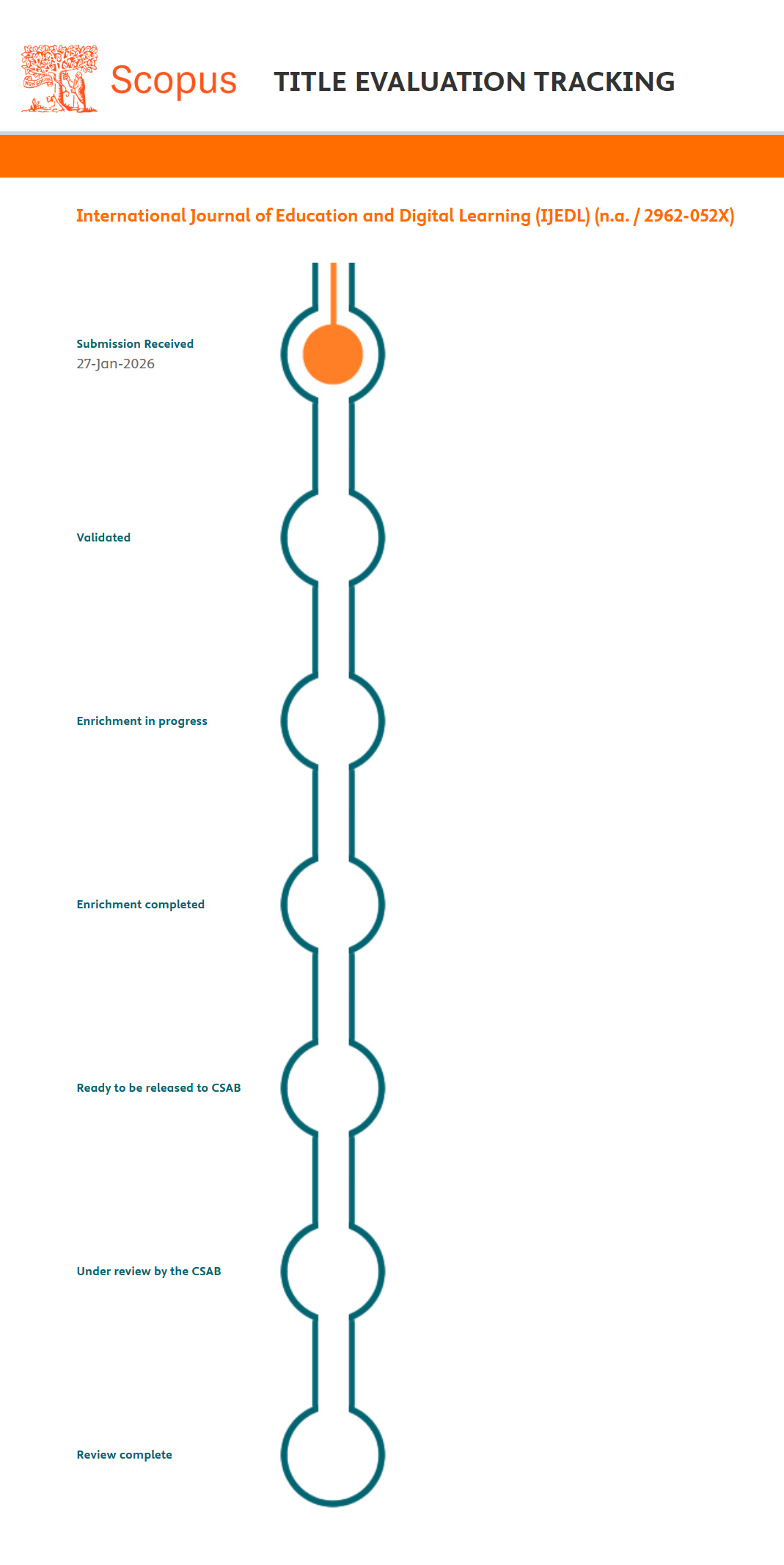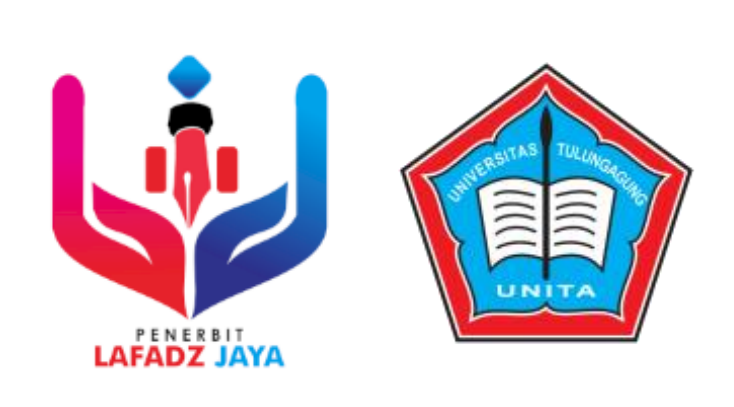The Development of Instrument for Identifying Linguistic Intelligence of Autistic Children Aged 4-5 Years at Kindergarten of Tursina Banyuwangi In 2022/2023 Academic Year
DOI:
https://doi.org/10.47353/ijedl.v2i3.108Keywords:
Autism, Linguistic Intelligence, InstrumentsAbstract
Developing linguistic intelligence in children with autism is one way to prepare children with autism so that they have a strong foundation for further development. For this reason, teachers need efforts to understand linguistic intelligence in children with autism, both through analyzing theories related to children's linguistic intelligence and identifying the linguistic intelligence of autistic children. This research aims to develop an instrument for identifying linguistic intelligence in children with autism aged 4-5 years at Tursina Kindergarten, Banyuwangi. The research method used is Research and Development (R&D) with the ADDIE (Analysis, Design, Development, Implementation, and Evaluation) approach. The analysis stage produced 6 indicators of linguistic intelligence in children with severe autism aged 4-6 years. The design stage produces an instrument design in the form of short statements and orders. The development stage developed an instrument in the form of a checklist with 5 assessment scales after going through revisions based on the results of the FGD with 3 validators. The implementation stage involves testing the instrument in class by the teacher, and the evaluation stage is carried out by asking for a qualitative assessment from the teacher. The results show that the instrument is suitable for the conditions of children with severe autism aged 4-5 years, with the note that implementation requires conducive conditions for the child. This research contributes to the development of methods for identifying linguistic intelligence in children with autism and can be a guide for teachers in supporting the development of children with autism.
Downloads
References
Dewi, D.M.C. 2014. Identifikasi Kemampuan Berbahasa Anak Autis di Sekolah Inklusif SD Negeri Giwangan, Yogyakarta. Skripsi. Universitas Negeri Yogyakarta
Gardner, Howard. 2009.The Theory of Multiple Intelligence. New York. Basic Books.
Ginanjar, A. S. 2008. Panduan Praktis Mendidik Anak Autis: Menjadi Orang Tua Istimewa Cetakan Pertama. Jakarta: Dian Rakyat
Hadrian J. 2008. Autisme. http://josephadrian.wordpress.com/2008/08/Autisme/. [diakses 7 juni 2017].
Handojo,Y. (2008). Autisme. Jakarta: PT. Buana Ilmu Populer Kelompok Gramedia.
Mujiyanti, D. M. 2011. Tingkat Pengetahuan Ibu Dan Pola Konsumsi Pada Anak Autis Di Kota Bogor. Skripsi. Bogor : Fakultas Ekologi Manusia, Institut Pertanian Bogor.
Musfiroh, T. 2014. Pengembangan Kecerdasan Majemuk. Jakarta: Universitas Terbuka.
Nafiah, H. 2018. Pengaruh Kecerdasan Linguistik Terhadap Kemampuan Siswa Dalam Menyelesaikan Soal Berbentuk Narasi Pada Materi Pokok Peluang Kelas XI di MAN Kendal.
Ni’matuzahroh dan Y, Nurhamidah. 2016. Individu Berkebutuhan Khusus dan Pendidikan Inklusif. Artikel. Universitas Muhammadiyah Malang
Nugraheni, S. A. (2008). Sekilas Tentang Belantara Autisme. Semarang: Pustaka Zaman
Pusari, Ratna. W. 2011. Bahasa dan Kecerdasan Anak. PG PAUD FIP IKIP PGRI Semarang. Vol 1 No. 2
Sugiyono. 2019. Metode Penelitian Kualitatif, Kuantitatif, dan R&D. Bandung: Alfabeta
Sujiono, Y.N. 2013. Konsep Dasar Pendidikan Anak Usia Dini. Jakarta: Indeks
Tanfidiyah dan F,Utama. 2019. Mengembangkan Kecerdasan Linguistik Anak Usia Dini Melalui Metode Cerita. Jurnal Ilmiah Tumbuh Kembang Anak Usia Dini 4 (3), 9-18
Utaminingsih. 2018. Kecerdasan Verbal Linguistik. Journal of UMS, 3(9), 1689– 1699.
Wijayakusuma, H. 2014. Psikoterapi Untuk Anak Autisme. Jakarta : Pustaka Populer Obor.
Yuliana, Emilia E. 2006. Penanganan Anak Autis Melalui Terapi Gizi Dan Pendidikan. Jurnal Pendidikan dan Kebudayaan 61 : 429-447.
Yuwono, J. 2012. Memahami Anak Autistik (Kajian Teori dan Empirik). Bandung: Alfabeta.
Downloads
Published
How to Cite
Issue
Section
License
Copyright (c) 2024 Atmi Prawuri, Nanik Yuliati, Senny Weyara Dienda Saputri

This work is licensed under a Creative Commons Attribution-ShareAlike 4.0 International License.












